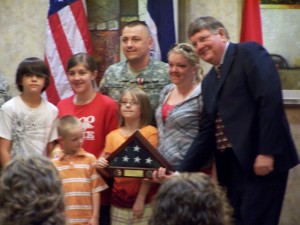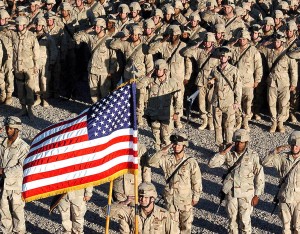Jul
29
Comparing TBI Injuries and PTSD
Filed Under TBI & PTSD | Comments Off on Comparing TBI Injuries and PTSD
 Last blog we focused on Traumatic Brain Injuries and how similar they can be to the symptoms of Post-traumatic Brain Disorders. To help demonstrate these similarities I have created a chart of Similarities and Differences.
Last blog we focused on Traumatic Brain Injuries and how similar they can be to the symptoms of Post-traumatic Brain Disorders. To help demonstrate these similarities I have created a chart of Similarities and Differences.
Much of the information is taken from our book, “Tears of a Warrior: A Family’s Story of Combat and Living with PTSD” and soon to be released new book by Laura Whittemore and Mary Ann Keatley, PhD, CCC, “Recovering from Mild Traumatic Brain Injury (MTBI): A Handbook of Hope for Our Military Warriors and Their Families”.
The Whittemore/Keatley book will give some helpful information on MTBIs including numerous questionnaires to assist individuals in recognizing if they need to seek medical services.
Note: Differences will be highlighted in Yellow (MTBIs) and Green (PTSD)
|
Mild Traumatic Brain Injury (MTBI) |
Post-traumatic Stress Disorder (PTSD)
|
|
Physical Symptoms · Headaches · Loss of balance · Vision problems · Dizziness · Loss of sex drive · Loss of energy · Easily fatigued · Sensitivity to light, sound, touch · Sleep disturbances |
Physical Symptoms · Headaches · Loss of sex drive · Loss of energy · Easily fatigued · Sleep disturbances · High blood pressure · Difficulty with digestion · Lower immune systems · High or lower levels of cortisol |
|
Emotional Symptoms · Depression · Mood swings, outbursts · Fearfulness · Apathy · Low motivation · Gullibility · Feeling easily overloaded · Anxiety, frustration · Difficulty managing emotions · Hyper vigilance, exaggerated startle response · Sense of helplessness · Loss of sense of self, low self-esteem · Nightmares · Anger |
Emotional Symptoms · Depression · Mood swings, outbursts · Fearfulness · Apathy · Low motivation · Feeling easily overloaded · Anxiety, frustration · Difficulty managing emotions · Hyper vigilance, exaggerated startle response · Sense of helplessness · Loss of sense of self, low self-esteem · Nightmares · Anger · Panic Attacks |
|
Cognitive Symptoms · Memory loss · Short attention span · Slowed thinking · Disorientation · Brain fatigue · Forgetfulness · Difficulty driving due to brain injury · Word finding and spelling difficulties · Impaired comprehension · Inability to organize thoughts · Inability to multitask · Inability to inhibit certain behaviors (i.e., excessive shopping, gambling…) · Difficulty with abstract thinking |
Cognitive Symptoms · Memory loss · Short attention span · Slowed thinking · Disorientation · Brain fatigue · Forgetfulness · Difficulty driving due to combat trauma… · Word finding and spelling difficulties · Impaired comprehension · Inability to organize thoughts · Inability to multitask · Inability to inhibit certain behaviors (i.e., excessive drinking, use of drugs both prescribed & illegal) · Difficulty with abstract thinking |
As you can readily see when you review the chart, the similarities are numerous which is why getting the most accurate diagnosis is critical. Treatment will differ by therapy options as well as prescribed medications. Improper identification can result in serious setbacks which may compound the individual’s ability to heal and recover from his/her injuries.
Jul
21
Traumatic Brain Injuries and PTSD
Filed Under TBI & PTSD | Comments Off on Traumatic Brain Injuries and PTSD
 It weighs barely three pounds, but it impacts everything that we do and much of who and what we are in life. The brain is a remarkable and sensitive body organ.
It weighs barely three pounds, but it impacts everything that we do and much of who and what we are in life. The brain is a remarkable and sensitive body organ.
This small, jelly-like form is made up of billions of neurons and their electrical/chemical connections that impact our emotions, our ability to remember new things, movement, and our interpretations of information from all the body senses (sight, sound, touch, taste…). When our brain is functioning well, we are able to do amazing things. Think about carrying out even the smallest tasks such as breathing, eating, watching a movie, or simply listening to music. The brain filters out unnecessary stimulus, thereby permitting us to transmit these basic, unconscious acts without much, if any effort. However, if we experience trauma to the brain, the entire system can be impacted in ways even the most knowledgeable neuroscientist doesn’t fully understand.
Now the simple tasks become much more complicated. The brain may not be able to filter out some things that allow us to focus on what is heard or seen. Or it may no longer be capable at breathing easily, or seeing accurately due to problems with concentration.
The notable piece of information to be aware of is the injury can be so cleverly disguised inside the brain that it can be difficult to diagnosis. A person does not have to pass out or get a knock on the noggin to acquire a brain injury. A huge blast, like those from an IED (improvised, explosive device), an unexpected fall, or rear-end car accident can jiggle the brain back and forth inside the skull causing internal bleeding and swelling. If and when this occurs, the normal functioning organ is no longer capable of doing what it once did so effortlessly. There is no such thing as a “perfect” brain. However, there is such a thing as a brain which has been damage.
Now, here’s the kicker in all of these particulars regarding the brain – the symptoms of Post-traumatic Stress Disorder and Mild Traumatic Brain injuries are very similar making identification of either problem tricky. Many individuals who have been involved in combat situations may have both PTSD and TBI to contend with as they cross the threshold to civilian life.
Therefore, it is critical that people who have either/both problems get medical services as soon as possible. The sooner the situation is attended to the better the results. Waiting only compounds the problem(s). If you suspect you have a problem, see a medical specialist and ask for a SPECT or an fMRI scan. SPECT scans must use machines that are at least a three – preferably four – angle apparatus. These give clearer pictures of the brain and what is happening when a person is doing particular tasks such as reading, thinking, or doing some specific task. CAT scans and regular MRIs don’t always pick up a slow bleed in the brain which is why SPECTS or fMRIs are needed for an accurate diagnosis.
Next blog, we will give some of the physical, emotional, and cognitive symptoms of TBIs and PTSD.
Jul
14
UNTIE THE YELLOW RIBBON
Filed Under WY National Guard | Comments Off on UNTIE THE YELLOW RIBBON
 As a child, I remembered a biblical passage – when someone died, the Lord waited to greet him or her into the Kingdom of Heaven. If the person had lived a worthwhile, meaningful life, the Lord would say, “Welcome home my good and faithful servant.”
As a child, I remembered a biblical passage – when someone died, the Lord waited to greet him or her into the Kingdom of Heaven. If the person had lived a worthwhile, meaningful life, the Lord would say, “Welcome home my good and faithful servant.”
On Saturday, we attended a Yellow Ribbon ceremony in Laramie, WY honoring ETT.2 National Guard Unit which had returned home after serving in Afghanistan from August 2008 until May 2009.
Of the fifteen individuals who deployed, only fourteen returned to receive their medals and celebrate with families and friends. One had paid the supreme sacrifice. Each member of the unit was called by name to accept the various medals from Governor Frudenthal and the National Guard’s top commanders. They listened to a special commendation read in their honor citing specific accomplishments while serving in Operation Enduring Freedom.
The speakers informed the gathering that in World War II, 12% of the population served in some capacity in the armed forces. Today, with an all volunteer military, only one third of one percent is serving. To make this clearer, the speaker noted, one would have to knock on doors of over 300 homes to finally get to one where someone is serving in the military. No wonder so many American’s have so little understanding of the sacrifice so few are giving to keep America and its citizens safe.
Presenters also noted some of the military’s achievements over the last many years while in Afghanistan:
- Helping create a healthier infrastructure such as hospitals, water filtering plants, schools, etc.
- Today, over six million children are now in school; two million are girls (girls have been forbidden by the Taliban to get an education)
- Over 6ooo kilometers of new roads have been constructed
- Healthcare is up and infant mortality is down
We were reminded how our troops are laying the groundwork for democracy in a country where running water is a rarity. Where accomplishing such a noble mission comes with a high price, both financial and human; a mission that proved again how a small group of focused, committed individuals can make a huge difference to enhance the lives of strangers in foreign lands.
It seemed to me, while listening to the speeches and special award presentations that it all could be summed up in one biblical sentence:
“Welcome home, my good and faithful soldier; your life has been meaningful and well spent.”
Let us hope we never forget the sacrifice and contributions our military men and women have made and are continuing to make to keep America free. For these fourteen families and communities, the yellow ribbons can now be untied, at least for now. And for one family, the yellow ribbon will forever be replaced with an empty chair at a table marking the high cost of service to our country.
Jul
10
You Can’t Tell a Hog What to Do
Filed Under Civilian life | Comments Off on You Can’t Tell a Hog What to Do
 The women gathered to talk about living with husbands who had served their country years ago during the Vietnam War. They were from throughout the United States and worked in a variety of careers. They were mothers, teachers, business owners, and even farmers.
The women gathered to talk about living with husbands who had served their country years ago during the Vietnam War. They were from throughout the United States and worked in a variety of careers. They were mothers, teachers, business owners, and even farmers.
During the morning session, we discussed the challenges of being in a relationship with a spouse who had experienced the trauma of combat – the killing, the living and the dying. Several of the veterans had been “tunnel rats”, those individuals whose job was to slither down the narrow passageways in search of Viet Cong. The tunnels allowed the enemy to pop-up out of nowhere and ambush American troops. Many believed the job of the tunnel rat was one of the most dangerous and scary assignments in Vietnam.
Several participants told stories of how the war did not remain overseas, but seemed to follow the vet back home.
Orders were still shouted, commands were given at all times of the day and night, and immediate compliance was expected. The deep battle scars of many warriors still remained.
I mentioned this phenomenon in our book, Tears of a Warrior. How my sons and I never quite understood the condition. In fact, we never fully realized that we walked a fine line between soldiers in combat and family. Our perceptions of how to respond to Dad were not the same as his. As one might imagine, such a scenario did not always produce a tranquil home environment.
Toward the end of the discussion, one lady explained to the group how it wasn’t her husband who had the most difficulty adjusting to home life, it was her.
You see, she explained, she ran the farm while he was away. She had to take care of the crops, fix the barn when it leaked, repair any broken appliances, and feed the animals, especially the pigs.
When her husband returned after being gone over a year, he kept asking why she did certain tasks in a manner unfamiliar to him. Her dilemma was to become more flexible in allowing him to reintegrate into the farm tasks, and not expect him to do things “her” way. Most of the farm duties were just fine after awhile, except one. It seemed the hogs weren’t terribly fond of the “new” farm hand and much preferred the lady as their primary feeder.
For any of you who aren’t familiar with farming and hog behavior, the only piece of information you need to know is that you don’t mess with a hungry, snorting hog.
Jul
1
Did You Know?
Filed Under Today's War | Comments Off on Did You Know?

On our last blog we wrote about the reunion of Charlie Company, 3rd Battalion, 22nd Infantry. The banquet’s guest speaker was COL Rainey of Fort Carson. In his speech he mentioned how important it was that the American people know and realize the many accomplishments of the troops serving in Iraq and Afghanistan. Since the media often reports the “terrible” stuff, he shared some of the more positive accomplishments of the current 3rd Battalion, 4th Infantry at Fort Carson. The following list is pretty impressive. More importantly, it balances the picture of this current war – a balance that shows the good along with the bad and ugly. Are you aware of some of the accomplishments of our soldiers?
- Killed and captured over 3700 terrorists and criminals
- Recovered over 2700 enemy weapons caches
- Coached, taught, and mentored Iraqi security forces
- Increased the police forces by over 12,000 policemen
- Transitioned 50,000 Sons of Iraq to government control
- Executed 2680 projects, improving the lives of Iraqis… sewer, water, electricity, agriculture, trash…
- Issued $14 million in micro grants, creating 7,000 jobs
- Executed 168 micro-generation projects, providing reliable electricity to tens of thousands
- Opened 405 schools, 55 clinics/hospitals, 18 swimming pools, and 49 new parks
- Did this with less combat power – 44 to 21 Battalions and the size or our battle space doubled
Did you know that because of these beneficial works, our American troops are striving hard to win the minds and hearts of a foreign people in a foreign land? A short verse in the Bible states, “By their works you will know them”. Maybe, when we leave the battle ground of Iraq, we will leave a legacy of good deeds and a future of greater hope. Maybe, war is more than killing and pain. Maybe, it is also a bit about small kindnesses and humane acts of decency. At the very least, when we read about the conflicts in Iraq and Afghanistan, we will remember the other part of the story.

